Peace and Nonviolence
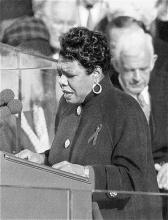
Maya Angelou, a renowned author, poet and civil right activist, has died at 86. Angelou, know for her autobiography I Know Why the Caged Bird Sings, also authored six other autobiographies along with numerous collections of poems.
Throughout her career, Angelou she was active in the Civil Rights movement, working with Martin Luther King, Jr. and Malcolm X. She also served a one point as the Northern Coordinator for the Southern Christian Leadership Conference, a group founded following the Montgomery Bus Boycott by Dr. King and others.
NBC News reports her numerous achievements:
Angelou was born on April 4, 1928, in St. Louis, Missouri, under the name Marguerite Annie Johnson. She grew up to become a singer, dancer, actress, writer and Hollywood's first female black director.
Angelou had an impressive list of accolades: She was a three-time Grammy winner and was nominated for a Pulitzer, a Tony, an an Emmy for her role in the groundbreaking television mini-series "Roots."

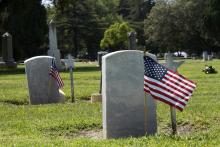
Monday was Memorial Day, full of family trips and events, lots of picnics and barbecues with friends and neighbors, and a national day off from school and work. For us it was the Northwest Little League All Star game here at Friendship Field in Washington D.C., a family tradition for many years. My wife Joy, the Commissioner, organized the game day, including a wonderful picnic on a glorious baseball day for players, parents, relatives, and many fans – with 300 hotdogs!
It was also a day to remember all the people who have died in America’s wars. For the families of those war victims and so many of their fellow veterans it was a day of remembering and mourning. In the quiet moments of listening to the national anthem while looking at the American flag, our little baseball crowd with hats off might have been thinking about the meaning of the national holiday. But right afterward it was “Play Ball.”
On Memorial Days I always end up listening to the many stories from the families who lost their most beloved ones and from the veterans whose eyes still tear up when they recall their dearest buddies lost on battlefields far away.

This week’s “10 Best Stories” missed an important news item from Palestine — not about Pope Francis but rather a family that practices what the pope preaches.
Tent of Nations, in the Occupied West Bank, has become a sign of hope over the otherwise fruitless last decades of peace negotiations. Interlocutors have nibbled around the edges of a “two state solution” since the early 1990s with the result that Israel has been able to confiscate vast areas of Palestine. The Nassar family, represented by Daoud and his parents and siblings, have built on their 100 acres a veritable garden of peace. This luxuriant vineyard is 15 minutes from Manger Square, Bethlehem. It has been owned by the Nassars since Ottoman times, and “Tent” has illustrated, what is declared on a stone at its entrance – non-violent action in its most faithful form. More than 7,000 visitors from around the world along with children in summer camps, as well as both Israelis and Palestinians, have been buoyed by the Nassars' 100-year commitment to living peaceable amidst turmoil by expressing biblical principles of loving neighbors, forgiving those who oppress, and peaceful coexistence with their neighbors.
Early on May 19, military bulldozers destroyed 1,500 fruit trees nearly ready for harvest in the valley below the Nassar dwellings. There was no warning of the impending destruction of the trees and terraced land, left in a state of rubble with no hope of being replanted. Daoud said the family was awaiting word on an appeal submitted after military orders to stop cultivation; bulldozers came before a legal response.
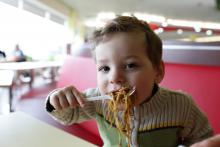
So my son comes marching into the kitchen, and says in a demanding tone, "Make me snacks now!" My first reaction is to think that this is simply unacceptable behavior, and that he needs a good talking to. But I also notice that I am quite triggered by this, and that before I do anything, I need to reflect.
So I start boiling water for some pasta (I do have enough sense to know that when he asks for a snack that what his body really needs is some healthy food and not junk). As the water boils it dawns on me why he was so rude. In a word: metabolism.
It's amazing to me how much of our spiritual and emotional problems have clear biological and physical causes. The reason he was so demanding is that his body was hungry, and so his brain went into alarm mode:
I need food NOW .
The problem is not that he is a rude kid, it's that his metabolism was flooding his brain. If I had scolded him this would have had the effect of riling up his brain even more, which was already in freakout mode (I'll leave it to a neurobiologist to explain this with big $10 words like amygdala and cerebral cortex, but the basic science here is quite solid).
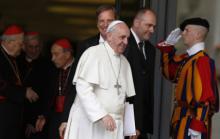
The visit of Pope Francis to Palestine, though initially intended to be a simple ecumenical meeting with the Patriarch of Constantinople, has turned into an enormous opportunity for His Holiness to reaffirm his commitment to peace and justice in a land that so desperately craves these things.
Francis’ visit is both timely and crucial. We Palestinians heard him clearly when he said: “We must restore hope to young people, help the old, be open to the future and spread love. Be poor among the poor. We need to include the excluded and preach peace.”
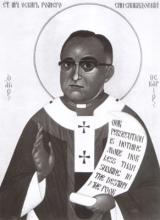
Despite fevered speculation in the media and across Latin America, the Vatican says Pope Francis has not advanced slain Salvadoran Archbishop Oscar Romero toward sainthood — at least, not yet.
Pope John Paul II gave him the title “servant of God” in 1997 and the case for his canonization began. But the case stalled under the papacy of Benedict XVI over concerns that Romero was too close to the liberation theology that John Paul and Benedict spent years trying to repress.
Francis revived the cause soon after he was elected last year, and recent reports in several languages have suggested that church officials were poised to beatify Romero, putting him one step short of sainthood.





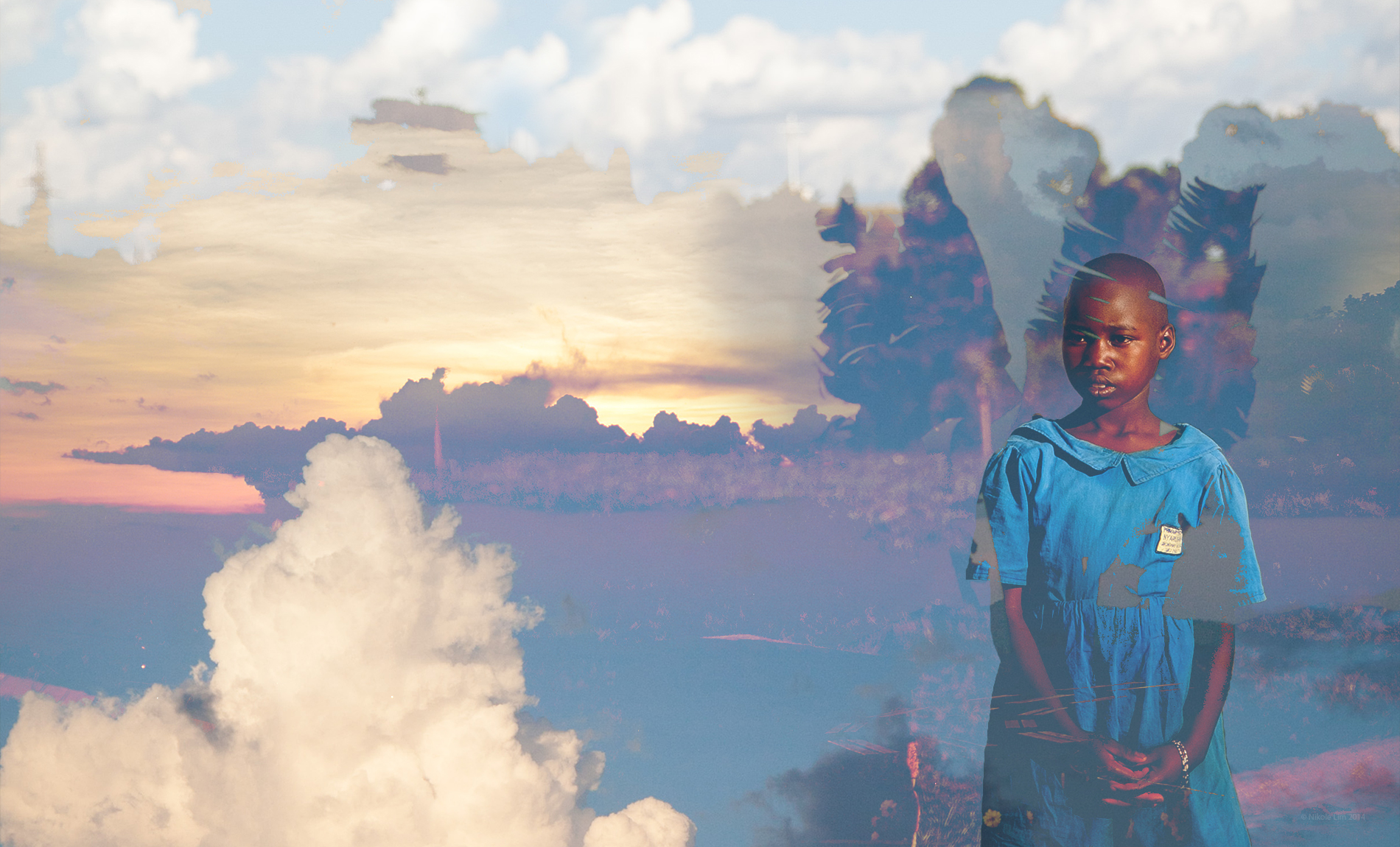
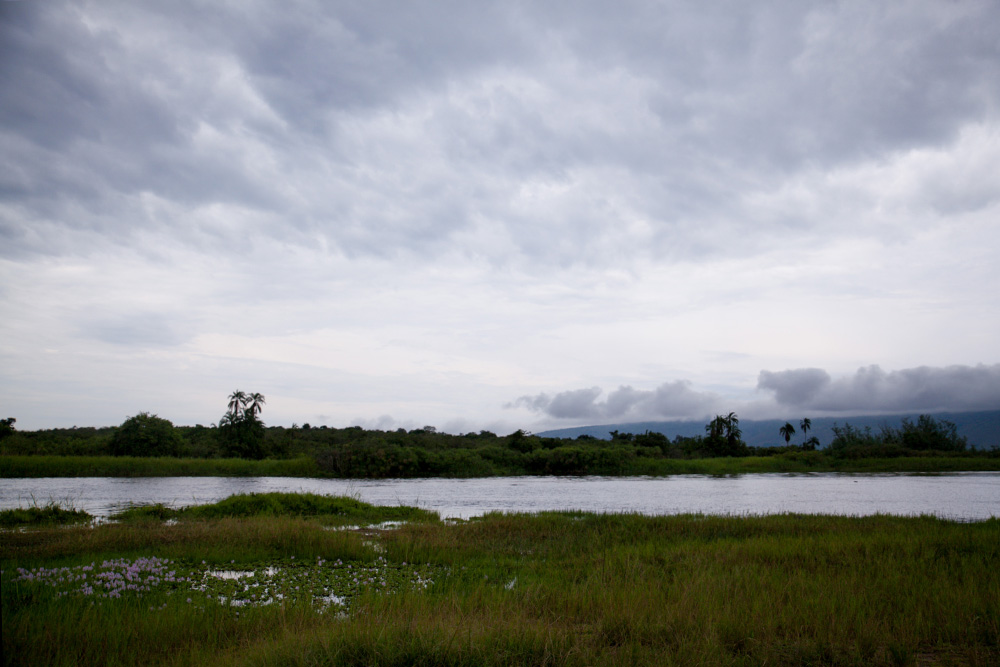
Our fearless driver, Jacque, is a security guard. He speaks with an eloquent French accent. His words are few, but every now and then he’ll tell us a pertinent and profound fact as we drive. The tone of his voice perfectly narrates our scenic drive — whether we’re driving along the backroads of Rwanda’s hills, cruising peacefully through Kigali, or chasing elephants.
His story comes out in pieces:
When the genocide hit in 1994, Jacque was in high school studying in Kibeho, a beautiful village known for apparitions of the virgin Mary. He fled for another town to find safety with his family. The first time he’s been back to Kibeho was 20 years later, with us.
His son is now in high school at a boarding school. On our way from Kibeho, we stopped to say hello so that Jacque could give him money. Jacque was beaming with pride when he introduced us to his son.
Jacque also has a 3-year-old daughter — she’s the cutest thing.
When we visited Kigali’s Genocide memorial, Jacque stayed in the car. We found out later that the bodies of his wife’s parents are buried in the mass graves there.
His wife barely escaped death herself. When she was just 9 years old, her village was raided by the interahamwe who savagely hacked apart bodies, her parents’ included. As the genociders were merely Hutu youth who knew little about taking one’s life, victims were left beaten, mutilated, bleeding profusely — left to die. Thinking they had finished the job, the interahamwe threw all of the “dead” Tutsi bodies into a pile and moved on to the next village. She was one of the bodies — broken, but not dead. She was just a little girl — her body thrown into darkness among hundreds of other broken, bloody, and hacked-apart bodies.
When the interahamwe left, her classmate, neighbor, and friend, a Hutu, went back. She couldn’t bear the thought of losing any more of her friends to the blood-stained hands of her tribe members. She went back to dig through the piles of bodies — desperately searching for any semblance of life from the friends she held most dear. There, she found her dear friend, still grasping for breath, clinging to life, refusing to be consumed. In that moment, I can only imagine the overwhelming relief as the pendulum swung from sorrow to joy as they looked into each other’s eyes and identified with each other — literally finding life in death and hope in the midst of pain. Jacque’s wife survived only by the hopeful expectancy of a friend who intentionally went back into the destruction to pull out the life within.

Over banana beer and fried plantains, we sat around a communal table—us and them. Together with both a victim and a perpetrator of genocide, it seemed impossible. My mind could not comprehend the juxtaposition I was seeing with my eyes—from betrayal into brotherhood, these men came. As they sat beside each other, I felt as if I were watching a live screen play of a fantastical story propagating the ideal picture of justice and reconciliation. But there was no fanfare of propaganda, no idealized sermon—just their painfully honest and vulnerable journey toward friendship. Their presence was humbling and their hearts, full of truth. Every detail of their innermost fears and failures came to life and I was left in awe.
In the various situations in my life, I’ve often asked myself this question: Which is easier—to forgive or to seek revenge? My human nature automatically errs toward seeking revenge—I’ve attempted to “punish” with silence or take away what I formerly gave as a way of protecting my broken heart. In desperation, I cling to what I know is “right.” It’s easier to identify with the victim, but to identify with the convicted? I’d rather not.


Editor's Note: This piece originally appeared at ABPNews/Herald HERE.
My friend Glen Stassen died today (Saturday, April 26) in Pasadena. He was 78. But because he was born on Leap Day — February 29, 1936 — Glen liked to joke that he was only 19. Until an aggressive cancer took his vitality over the last year, and finally his life, Glen as 78-going-on-19 was totally believable. It is impossible to believe that he has gone to be with Jesus.
There are only a small number of people beyond family who deeply affect the course of one’s life. Glen Stassen was one such person for me, perhaps the primary person outside my family who shaped who I am and what I have become. Having him gone makes me feel like an orphan.




I felt the ground crumbling from beneath me and so I clung to silence. Still, the sound of death was there. I tried to drown out the haunting screams echoing in my brain with my breath — but the rising and falling of my chest exhausted my efforts. In remembering those suffocated by inhumanity, I felt guilty for breathing in the sweet scent of life. Here, memories of death are inescapable in a country that holds so much beauty.
We stayed in silence together as we drove home — attempting to escape the bloody reminders of death. Home is at the Pallottine mission guesthouse built on the same campus that the Gikondo Massacre took place 20 years ago. On April 10, 1994, three days after the genocide began, the interahamwe savagely murdered 110 Tutsis in a large parish on this campus. As if simply killing wasn’t enough, the militia slowly tortured and mutilated the bodies of all Tutsis present at the church. Somehow, 11 children survived the slaughter and were hidden in another chapel by the parish nuns — I could see this chapel from the balcony of my guest room. But three days later, the interahamwe returned to Gikondo to set the chapel on fire. There were no survivors. This is the place we call “home.” The UNAMIR considered this massacre at Gikondo the first evidence of “genocide,” referring to violent crimes intending to wipe out the existence of a people group. In response to these evident systematic killings, the commander of the U.N. Peacekeepers pleaded with his superiors to allow him to intervene before more died. He said that he only needed 2,500 troops to end the slaughter within weeks to defend the Tutsis. His plan of attack against the interahamwe would stop their violent rampage. Shockingly, the U.N. denied his request and instead, required 90 percent of peacekeeping forces to withdraw from Rwanda. A month later in May, the U.N. Security Council finally voted to send 5,500 peacekeeping troops to Rwanda however, the United States stalled their deployment. Delighted by the world’s lack of response, the interahamwe continued to reign and the bloodbath escalated. One hundred days passed and still, the world did not say a word.
Joshua broke the silence,